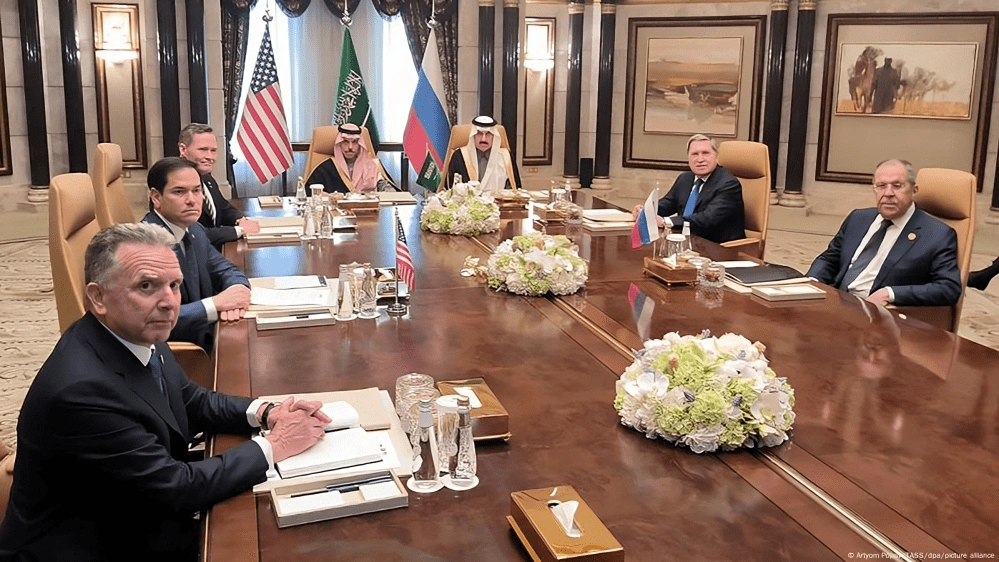With war raging indefinitely between the two countries, U.S. Senator Marco Rubio underscored the need for a resolution that was both “just” and “sustainable.” The United States was a great ally to Ukraine in terms of military aid, financial assistance, and overall support in diplomatic terms while Ukraine rushed to fight against the aggression of Russia. As the war reaches the end of its third year, worries over whether the future would prove stable, the costs would escalate, and the geopolitical consequences would become global have multiplied. According to Rubio and other officials in the U.S., whatever the resolution is going to look like, it needs to address the sovereignty of Ukraine while making sure that there is no opportunity for future aggression on the part of Russia.
The Sustainability Need
Rubio said that it is vital to have a peace settlement that stops hostilities and prevents Russia from being able to regroup for another invasion of Ukraine in the future. He warned that should a ceasefire be imposed in haste or only for the sake of operational convenience, Russian forces would have enough time to consolidate the territorial gains made after their 2014 invasion of Crimea and prepare fresh offensives.
Support in the United States and Challenges
The Biden administration has fully backed Ukraine, spending billions of dollars in military and economic assistance. Such advanced weapons, including air defense missiles, tanks, and drones, will perform a highly significant role in aiding Ukraine to resist the massive head-on attacks from Russia. However, there has been an increasing division in the U.S. over debates regarding more funds because some Congress members are now wading into questions about how much this would cost in the long term or its strategic objective for American involvement.
Rubio and others in Congress have expressed their concerns about keeping the public and political support for Ukraine aid. Some lawmakers believe that the United States should be putting more focus on domestic matters and let Europe take care of that continent, while fruitful counter-arguments suggest that the failure to support Ukraine would be seen by Russia and other enemies as a strategic win and set a very bad precedent for global security.
Geopolitical Implications
This is a concern that pervades many U.S. policymakers who see any agreement requiring security guarantees for Ukraine, possibly through some NATO arrangement or defense cooperation treaty. The U.S. and its allies are still debating the features of a lasting peace that include whether this peace entails Ukraine regaining all occupied territories or a negotiated settlement that may entail certain compromises.
In its broader context, the war has also politically changed the world, stretching the U.S.-Russia ties, while instigating NATO to increase its forces in Eastern Europe. Countries such as Finland and Sweden have been taking closer steps for NATO ties, which could further evidence how Russia’s incursion has turned from weakening the West to strengthening ties among Western countries.
Rubio also points out the larger ramifications this war can have with respect to China. According to him, U.S. actions concerning the crisis in Ukraine may also determine how Beijing views Taiwan: if the U.S. is perceived to have backed down from supporting Ukraine, China may see that as a sign of weakness, thus increasing the potential for conflict with Taiwan.
What happens afterward?
The U.S. and its allies are hopeful for an end to the war that can be sustained in equilibrium, but the situation on the ground remains ever-changing. Ukraine has gained some key military advantages but is still hindered by further challenges, including missile and drone strikes on its logistics infrastructure. As for Russia, there is a lack of clear will on its part to continue meaningful peace negotiations while it still insists that Ukraine must recognize Russian-occupied territories.
According to Rubio and other U.S. officials, strategy for this war is essential to its further prosecution. A settlement must guarantee Ukraine’s future security and restrain any Russian future aggression. The U.S. seeks, be it through military aid, negotiations, or both, an end both just and lasting.
With the prospect of stability on the line, nations worldwide will be watching closely how the United States pursues its objectives in this convoluted war. The months ahead could be crucial in determining whether a solution can be found-or whether the war will continue indefinitely and reshape the relations of the world for decades to come.





